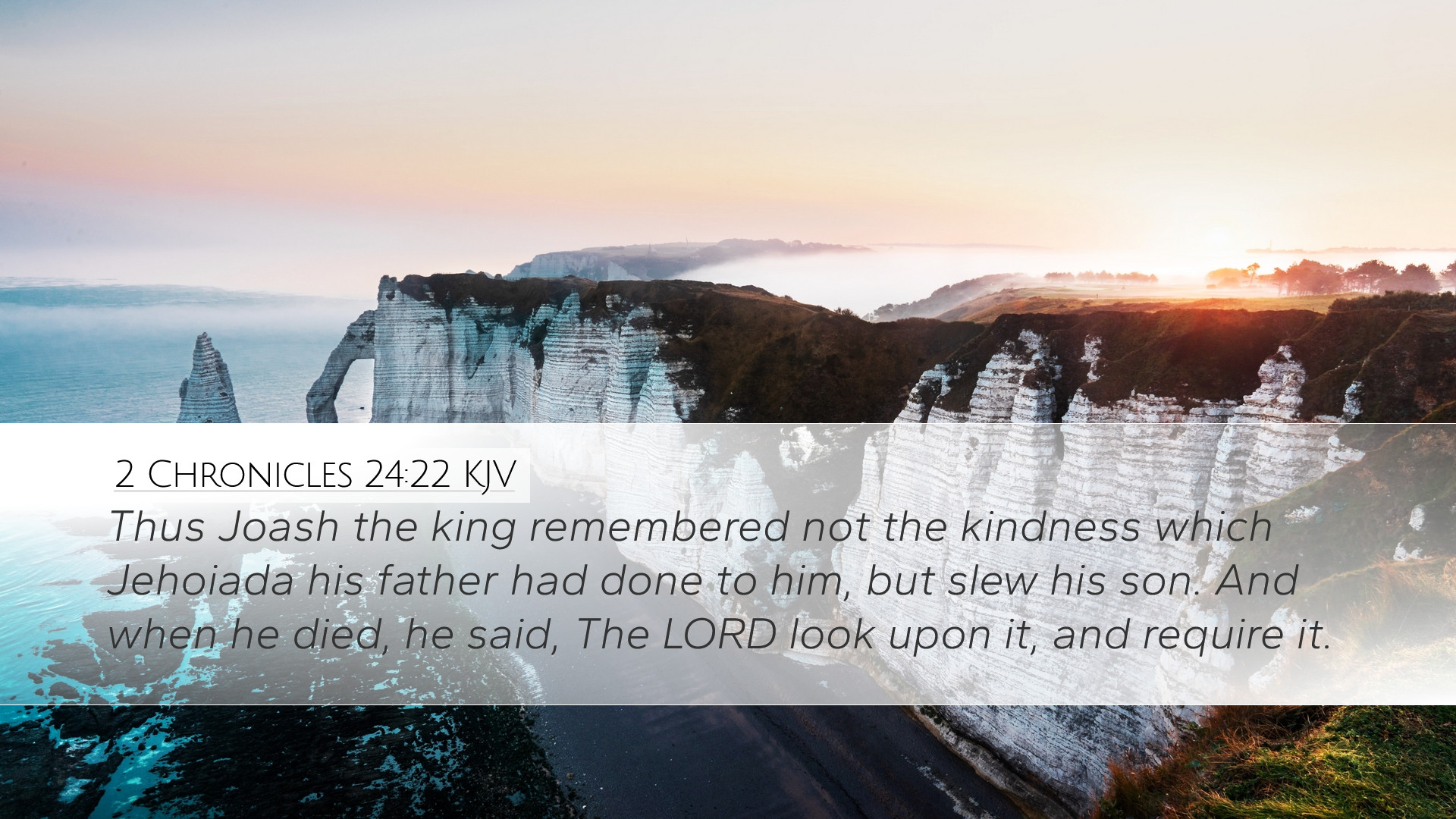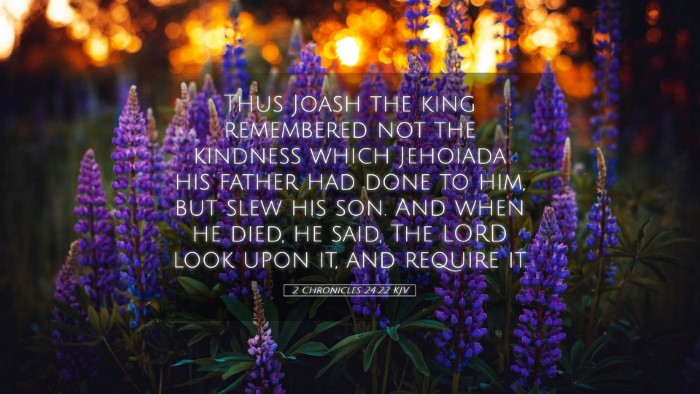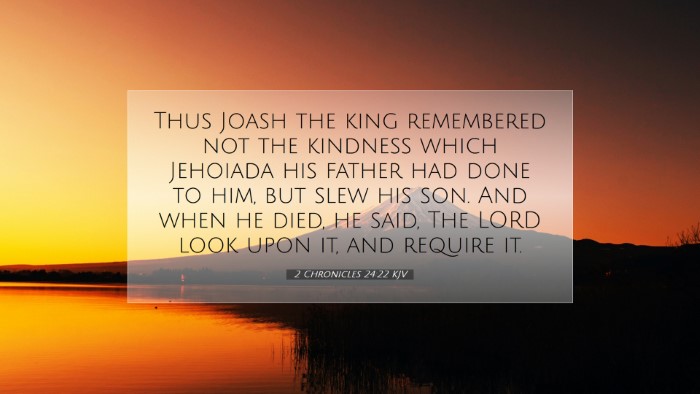Commentary on 2 Chronicles 24:22
Verse Text: "Thus Joash the king remembered not the kindness which Jehoiada, his father, had done to him, but slew his son: and when he died, he said, The Lord look upon it, and require it."
Introduction
The narrative of 2 Chronicles 24:22 presents a pivotal moment in the reign of King Joash. After a period of zealous reform under the guidance of Jehoiada the priest, Joash's eventual betrayal of the covenant established in that time demonstrates the volatility of human faithfulness. In this commentary, we will explore several key themes within this verse, drawing insights from the works of respected theologians such as Matthew Henry, Albert Barnes, and Adam Clarke.
The Legacy of Jehoiada
Matthew Henry emphasizes the contrast between the faithfulness of Jehoiada and the ingratitude displayed by Joash. Jehoiada, who had saved Joash as an infant and guided him to the throne, is a figure of great devotion and commitment. Henry notes that Joash's failure to remember this kindness is particularly egregious, indicating a broader spiritual decline:
"It is an unspeakable evil when favor is forgotten and kindness is overlooked."
Historical Context
Albert Barnes provides valuable historical insights into the period of Joash's reign. Barnes points out that under Jehoiada's influence, there was a significant revival of worship centered on the temple. Nevertheless, after Jehoiada's death, Joash was susceptible to the influences of ungodly advisors. This transition marks a critical shift in his leadership style and theological commitment.
The Tragic Outcome
Joash’s actions against Jehoiada's son, Zechariah, are highlighted in this verse as an indication of his moral and spiritual downfall. Adam Clarke elaborates on the severity of this act, noting that Zechariah’s martyrdom is a fulfillment of the very warnings given by the Spirit of God. Clarke writes:
"The blood of the innocent calls for vengeance. A national apostasy must bring down divine wrath. Joash's sins eventually lead to his downfall."
The Nature of Forgiveness and Justice
The declaration of Joash, "The Lord look upon it, and require it," encapsulates a theological reality acknowledged by many scholars. Henry notes that Joash's statement reflects a superficial understanding of divine justice:
"He seems to acknowledge a higher moral order, yet his actions betray a heart hardened against the consequences."
Reflection on Divine Retaliation
Barnes provides a powerful reflection on divine retribution in response to injustice. He asserts:
"God will not allow the blood of His faithful servants to cry out unanswered. Joash will encounter the very judgment he invoked."
Theological Implications
- The Perils of Forgetting Kindness: This verse serves as a warning against the dangers of forgetting the mercies of God and the kindness of those who lead us spiritually.
- Leadership and Accountability: Joash’s shift from following godly counsel to succumbing to wicked influences underscores the need for continual accountability in leadership roles.
- The Consequences of Apostasy: The act of forsaking God ultimately leads to personal and national consequences that affect the community.
Conclusion
The commentary on 2 Chronicles 24:22 reveals deep truths about human nature, divine justice, and the importance of remembering the kindness of those who lead us towards the truth. The warnings presented through the life of Joash remind us that an ingratitude for divine leadership can lead to tragic outcomes. As we reflect on this verse, may we be vigilant in our remembrance of God’s mercies and faithful leadership in our lives, recognizing the grave responsibility that comes with leadership.


